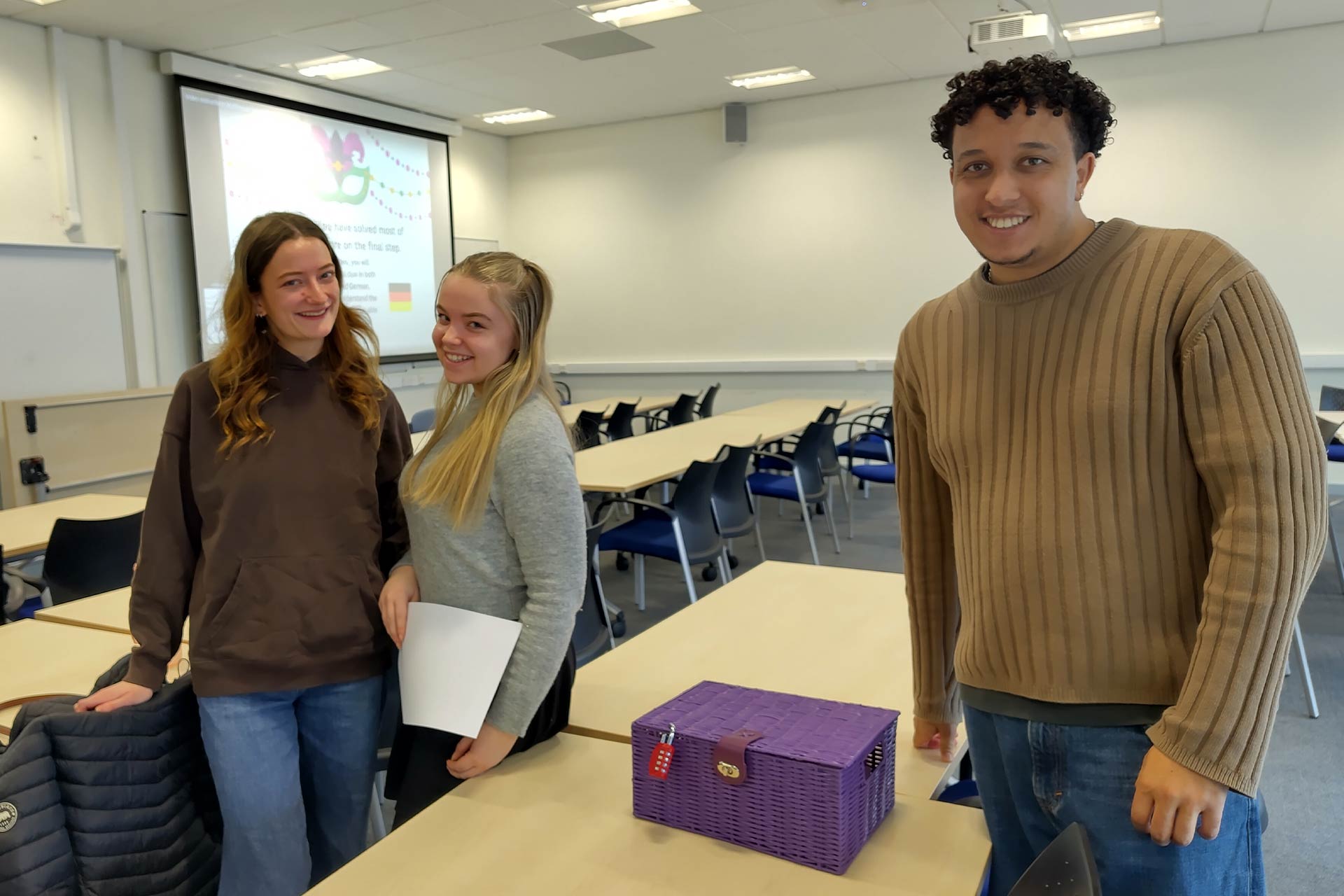
What if language learning wasn’t just grammar and textbooks, but solving puzzles and cracking codes? At the University of Liverpool in the Department of Languages, Cultures and Film (LCF), students had the chance to do exactly this with our multilingual escape room that turned language learning into a carnival-themed challenge. Over six weeks, four students Millie, Ruben, Charlotte and Anna (see photo) created an escape room that was financed by the LCF Innovation Fund and led by Hanna Magedera and Claudia François
Escape rooms
In recent years, escape rooms have gained popularity, offering players the chance to find clues, solve puzzles and work as a team to ‘escape’. In addition to being fun and challenging, escape rooms offer a creative learning style, particularly for languages.
A multilingual experience
At the University of Liverpool, we had the exciting opportunity to take the classic escape room to the next level by incorporating a number of languages taught at the university. Inspired by Carnival, a cultural celebration in many countries, our escape room challenged students to solve four clues in different languages before escaping to carnival and claiming a prize. The clues involved idioms, crosswords and carnival-themed words in German, French, Spanish, Portuguese, Italian, Catalan and Mandarin, all of which are offered at the Department of Languages, Cultures and Film. To escape the room, students had to watch a video with instructions in both German and French, with additional audio clues along the way testing their listening comprehension. Students had the opportunity to apply their reading, vocabulary and problem-solving abilities in a practical and interactive way, while learning new languages.

Carnival around the world
Beyond the joy of language learning, our escape room also celebrated the cultural significance of Carnival in different countries, each with its own unique traditions.
In Germany, Karneval is a major celebration in the north, where cities like Cologne and Düsseldorf come alive with parades, costume parties and usually satirical and political floats. In the south of Germany and Austria, it is known as Fasching and involves similar celebrations but also involves wearing wooden masks to scare away the cold, dark winter. In Brazil, cities like Rio de Janeiro are transformed for carnival with samba dancers and street parties, very much like in Spain which has days of parades and festivities, most famously in Cádiz. Italy’s carnival, best known in Venice, is famous for its masked balls, while in Portugal, carnival is celebrated with a symbolic burning ceremony to mark the beginning of a new season. As you can tell, Carnival is a widely celebrated tradition all around the world, which is why it is such a perfect theme for our educational and fun escape room.

Pilot project with first-year students
We recently piloted the escape room with first-year language students at the University of Liverpool and it was great to see both teams successfully escape. Their feedback was overwhelmingly positive, with one student commenting: “The clues and activities were great and the way they encouraged teamwork and movement around the room would make it entertaining for applicants”. The incorporation of escape rooms into class can provide a new way of learning a language – going beyond the classroom to a practical scenario, using languages and problem-solving as well as learning cultural traditions. With the success of our first trial session, multilingual escape rooms have the potential to become an exciting new addition to language lessons, making learning more interactive, engaging and rewarding than ever. We can’t wait to see more students take on this challenge!